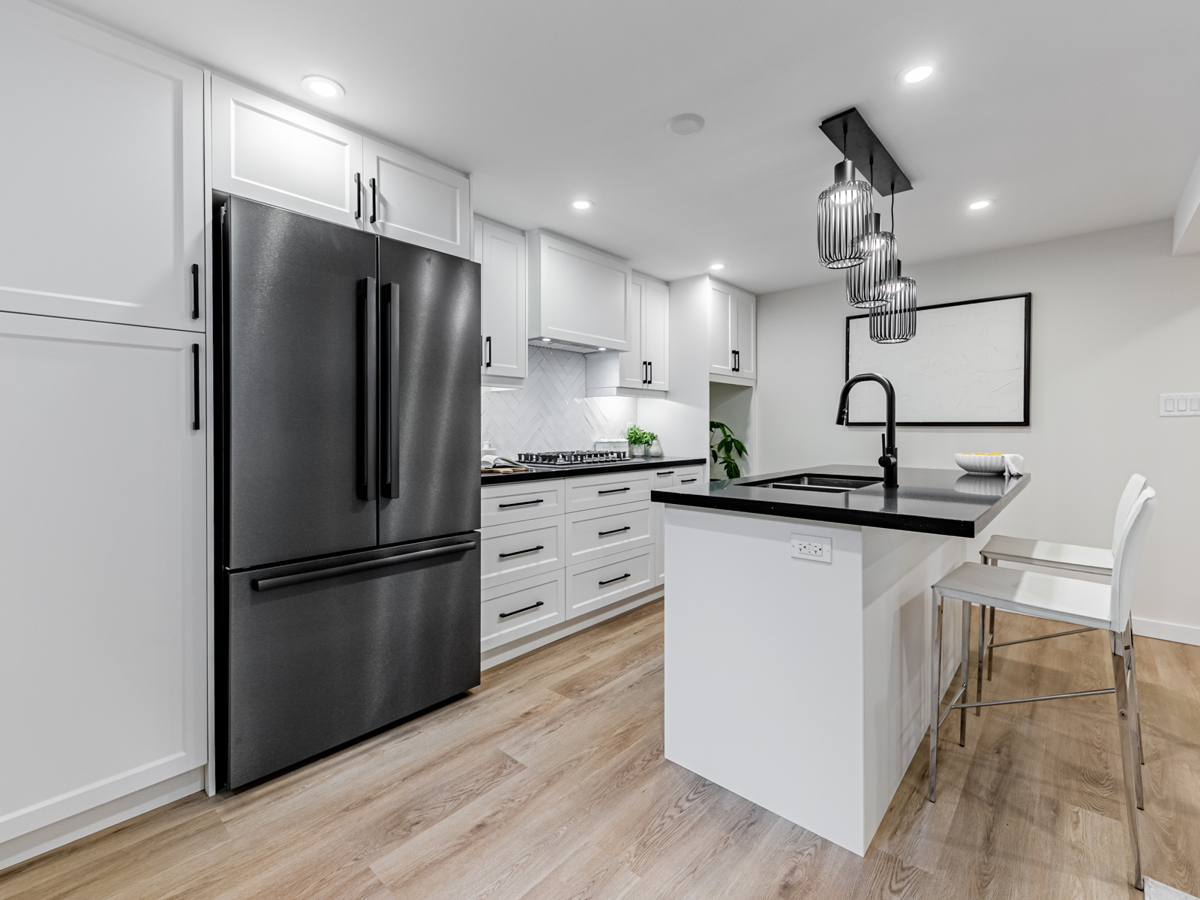How Much to Finish a Basement in Canada?
Table of Contents
9 min read
Quacy Barry Jun 7, 2024 7:53:43 AM

Are you considering renovating your basement but not sure where to start? Look no further because we have covered you with ‘The Complete Guide to Renovation Basement Costs: How to Budget and Save Money.’ Renovating a basement can be an exciting project but can also be overwhelming and costly if not planned properly. In this comprehensive guide, we will walk you through the various factors that affect basement renovation costs and provide tips on budgeting effectively and saving money. We will cover everything from materials and labour costs to unexpected expenses and DIY options. Whether planning a full basement remodel or just looking to spruce up the space, our guide will help you make informed decisions and stay within your budget. With the help of experienced contractors and expert advice, you will have all the information you need to transform your basement into a functional and beautiful space that suits your needs and style. Get ready to take the first step towards your dream basement renovation!
The importance of budgeting for basement renovation
Renovating a basement is a significant investment, and having a budget in place is crucial to ensure you don't overspend. A well-planned budget will not only help you stay on track financially but also allow you to prioritize your renovation goals. Before diving into any renovation project, it's essential to assess your financial situation and determine how much you are willing to spend. Setting a realistic budget will help guide your decisions and prevent any financial stress along the way.
When creating your budget, consider the purpose of the basement renovation. Are you looking to create an additional living space, a home office, or a playroom for the kids? The intended use of the space will influence the level of renovation required and, subsequently, the costs involved. It's also important to factor in any potential return on investment if you plan to sell your home in the future. A well-designed and functional basement can significantly increase the value of your property.
Factors that affect basement renovation costs
Several factors can influence the overall cost of renovating a basement. Understanding these factors will help you plan your budget more effectively and avoid any unexpected expenses.
1. The 8 Steps Guide to Renovation Basement Costs
2. Common Mistakes to Avoid When Budgeting for Basement Renovation
Several factors can influence the overall cost of renovating a basement. Understanding these factors will help you plan your budget more effectively and avoid any unexpected expenses.
By considering these factors and conducting thorough research, you can better understand the potential costs involved in renovating your basement. This knowledge will help you create a realistic budget and make informed decisions throughout the renovation.
Basement renovation costs can vary significantly depending on the specific project you have in mind. To give you a rough idea, here are the average costs for some common basement renovation projects:
It is important to note that these are just average costs, and the actual expenses can vary based on your location, the materials chosen, and the specific requirements of your basement renovation project. Obtaining multiple quotes from contractors and suppliers will give you a more accurate estimate of the costs involved.
Creating a realistic budget for your basement renovation is crucial to ensure that you can complete the project within your financial means. Here are some steps to help you create a budget that works for you:
By following these steps and being diligent with your budget, you can ensure a smoother renovation process and avoid any financial surprises along the way.
Renovating your basement doesn't have to break the bank. With careful planning and smart decision-making, you can save money without compromising on the quality of your renovation. Here are some tips to help you save money on basement renovation costs:
Remember, saving money doesn't mean cutting corners or compromising on quality. It's about making smart decisions, prioritizing your renovation goals, and finding the best value for your investment.
Deciding whether to hire professionals or take on a DIY basement renovation is a personal choice that depends on several factors. While DIY projects can save money on labor costs, they require time, effort, and a certain level of expertise. On the other hand, hiring professionals ensures a higher level of quality and expertise but comes with additional expenses. Consider the following factors when making your decision:
Ultimately, the decision to hire professionals or take on a DIY basement renovation depends on your comfort level, budget, and the complexity of the project. Consider seeking advice from experienced contractors or professionals who can provide guidance based on your specific renovation goals.
If you don't have sufficient savings to cover the costs of your basement renovation, there are several financing options available to help you fund your project. Here are some common financing options to consider:
Before deciding on a financing option, carefully consider the interest rates, repayment terms, and associated fees. It's also a good idea to consult with a financial advisor who can provide personalized guidance based on your financial situation.
When budgeting for your basement renovation, it's important to be aware of common mistakes that can lead to overspending or unnecessary stress. By avoiding these mistakes, you can ensure a smoother renovation process and stay within your budget. Here are some common mistakes to avoid:
 Read More
Read More

Discovering the bathroom remodel cost average. 7 Essential Steps to Crafting My Perfect Bathroom
.png)
{% video_player "embed_player" overrideable=False, type='hsvideo2', hide_playlist=True, viral_sharing=False, embed_button=False, autoplay=True,...